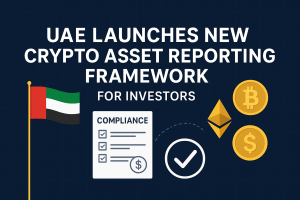Starting a finance blog, and making money off it are many bloggers’ dreams. But the reality is not as rosy as such dreams. On the face of it, starting a finance blog is extremely lucrative. Blogs on the personal finance domain, on average, yield an annual revenue of $100K. It’s an amount that only the top earners of the US make every year.
Does that mean anyone with a finance blog is on the journey of becoming a millionaire? Absolutely not. Most in this domain are dummies. Many don’t even have a clear idea how to start a finance blog. But yes, one thing can be said about a finance blog. They have potential. If finance bloggers put the right amount of effort and investment, and familiarize themselves with all the nooks and crannies, they could, one day, make banks.
In this article, I’ll discuss how to start a finance blog, how to grow it with time, and most importantly, how to monetize it. So stay tuned if you are interested in starting a finance blog.
From niche to micro-niche
I am sure you’ve heard it before. That selecting a niche is of extreme importance for a blog. Blogs that are on multiple things have a lesser chance of success compared to blogs that focus on a particular niche. While that’s true, it’s 2023 and every niche has undergone so much expansion – both in terms of audience base as well as topics – that covering a specific niche is not always profitable.
Bloggers are moving from niche to micro-niche. Earlier, blogs used to cover generic niche areas. For example, a sports blog got visits from ardent sports enthusiasts, all of whom had interests in different sports. But now, there are blogs dedicated to cover each single type of sport. As a result, soccer fans have no reason to visit blogs on American football, and likewise.
If you are wondering how to start a finance blog, this is your answer. Several micro-niche areas come under the umbrella niche that’s finance. Mortgage, borrowing and lending, macro-finance, enterprise finance, retirement planning are all individual blogging niches, and readers interested in one of these niches may not be interested in another. Just like our previous sports example.
Subject matter expertise
When operating in the finance domain, the importance of in-depth subject matter knowledge cannot be overstated. Remember, this is something that can make or break your blog. If you have sketchy and desultory knowledge in finance, I suggest you refrain from starting a finance blog.
Wait till you can increase your knowledge, and then start a finance blog. While subject matter expertise is important in almost all domains, it’s especially important in finance as many of your readers would be investors themselves. Either they would be investing at this moment, or budding investors, or maybe blockchain enthusiasts. If you yourself don’t have a profound understanding of finance, what kind of advice will you offer them? And what will happen to their hard-earned money if they act upon your advice?
Others might read your blog for money saving tips, tax saving tips, or budget planning tips. They’d figure out soon enough that you are nothing but an imposter, who has started a finance blog only to make some quick bucks, and don’t give two hoots about your readers and their money.
Search engine authority
Earning credibility from readers is important for a finance blog. In the same vein, establishing search engine authority is a must. Search engines are way more discriminatory and run highly sophisticated algorithms. They won’t consider your blog an authoritative source of information unless the content you post is really really of value.
Keep in mind, your blog is not the only finance blog out there. There are millions, and they are all competing for a search engine high ranking and featured snippets. Ask yourself, do you have the kind of authority that those other blogs lack? Embark on starting a finance blog if and only if the answer is yes.
Or else, you might get visitors, and might even make some money here and there, but you can never build long-term authority. And long-term authority is necessary for perennial success of a finance blog.
Understanding monetization routes
It’s ironic that people want to know how to start a finance blog, but don’t want to know how to monetize the blog until after a year or so. In my opinion, they must have a monetization plan before starting the blog. A lack of realistic monetization goal implies the blogger is going to waste his time.
Understand the reason behind it. It’s tough to monetize a blog and get a decent return when the blogger is in the middle of his blogging journey. His efforts are going to grow the blog, he needs extra effort to make money off the blog’s growing user-base. He’d have to find new channels, promote his blog through those channels, search for advertisers, persuade them to put banner or other types of ads on his website. Negotiate the price of sponsored posts from the oncoming offers, without hurting the credibility of the blog.
Unless all of these are planned before, the blogger would find himself cash-strapped and time-strapped. So, how you are going to monetize your financial blog must be worked out way before you start the blog. Sure, there might be unforeseen expenses, or challenges that your plan didn’t account for. But it’s always better to have a plan than no plan.
Conclusion
As stated already, finance is a competitive domain. But that’s no reason for wannabe finance bloggers to feel dejected. This article describes how to start a finance blog, and what steps to follow to make it successful. So, follow the tips shared here to stay ahead of the game.








